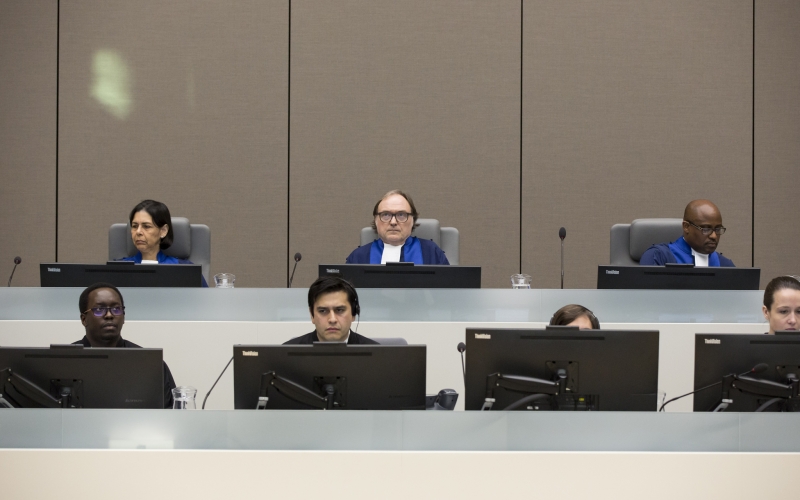In the Courtroom: Prosecution witnesses headline three ICC trials

Ntaganda: Prosecution case nears end; Judges clarify jurisdiction over child soldiers
The ICC trial of former Congolese militia leader Bosco Ntaganda, charged with numerous counts of war crimes and crimes against humanity, got off to a compelling start in 2017 as judges put to rest what had been a contested issue since the pre-trial stage: that the ICC does have jurisdiction to try individuals for the war crimes of rape and sexual slavery of child soldiers in their own forces. Ntaganda and his defence team have appealed the decision.
The proceedings have now entered the final stages of the prosecution case, during which another witness was refused protective measures - other than expert witnesses, up until that point only three prosecution witnesses had testified without such measures. A week later the witness, a former Congolese judge, nevertheless went on to become one of the only witnesses to publicly testify against Ntaganda. More recently, a former UN investigator served as an expert witness to testify to allegations of reports of widespread crimes by Ntaganda's forces.
Learn more about the Ntaganda case
Ongwen: Witnesses discuss LRA command structure; Ugandans follow from afar
The ICC trial of Dominic Ongwen, charged with 70 counts of war crimes and crimes against humanity over conduct as a Lord's Resistance Army (LRA) commander in northern Uganda, picked up again in January after opening in December 2016. The proceedings were streamed to not only affected communities in northern Uganda, but also Ongwen's home village, prompting strong reactions from various groups.
In the courtroom, the prosecution brought forward an LRA expert to provide context for the conflict as well as LRA beliefs and methods. The remainder of the month saw prosecution witnesses continue to testify, with several recounting their experiences with the government intercepting and interpreting LRA radio transmissions, as well as an LRA insider explaining codes used by the group. In the first week of February, the second former LRA radio operator to testify for the prosecution described LRA leader Joseph Kony as unpredictable, sometimes ordering and then halting civilian abductions. He also spoke about promises of amnesty from the Ugandan government in exchange for defection from the group, while claiming Kony used the threat of ICC prosecution to discourage commanders from leaving him.
The defence team has yet to present its evidence. The trial, currently in recess, will resume February 27.
Learn more about the Ongwen case
Gbagbo/Blé Goudé: Testimony on post-election violence; Judges urge trial efficiency
The ICC trial of Laurent Gbagbo and Charles Blé Goudé, arising from the 2010-11 post-electoral violence (PEV) situation in Côte d'Ivoire, resumed on 6 February 2017 after budgeting constraints related to conducting three simultaneous ICC trials saw proceedings suspended for two months. Upon resumption, the presiding judge announced a series of steps to be taken to ensure a more timely and efficient trial process going forward, such as reducing the number of witnesses and questioning time.
In February, the defence continued to cross-examine a prosecution witness claiming to be present during the electoral violence in Abobo and possessing video evidence. The defense challenged the credibility of the witness, alleging that he and the prosecution falsely represented the nature and relevance of the footage. The first half of February also saw the questioning of a retired soldier who alleged hearing orders to "kill" while eavesdropping on radio transmissions during the PEV crisis; and the questioning of a police officer who was in Abidjan at the time, including about any special instructions he might have received.
Learn more on the Gbagbo/Blé Goudé case
